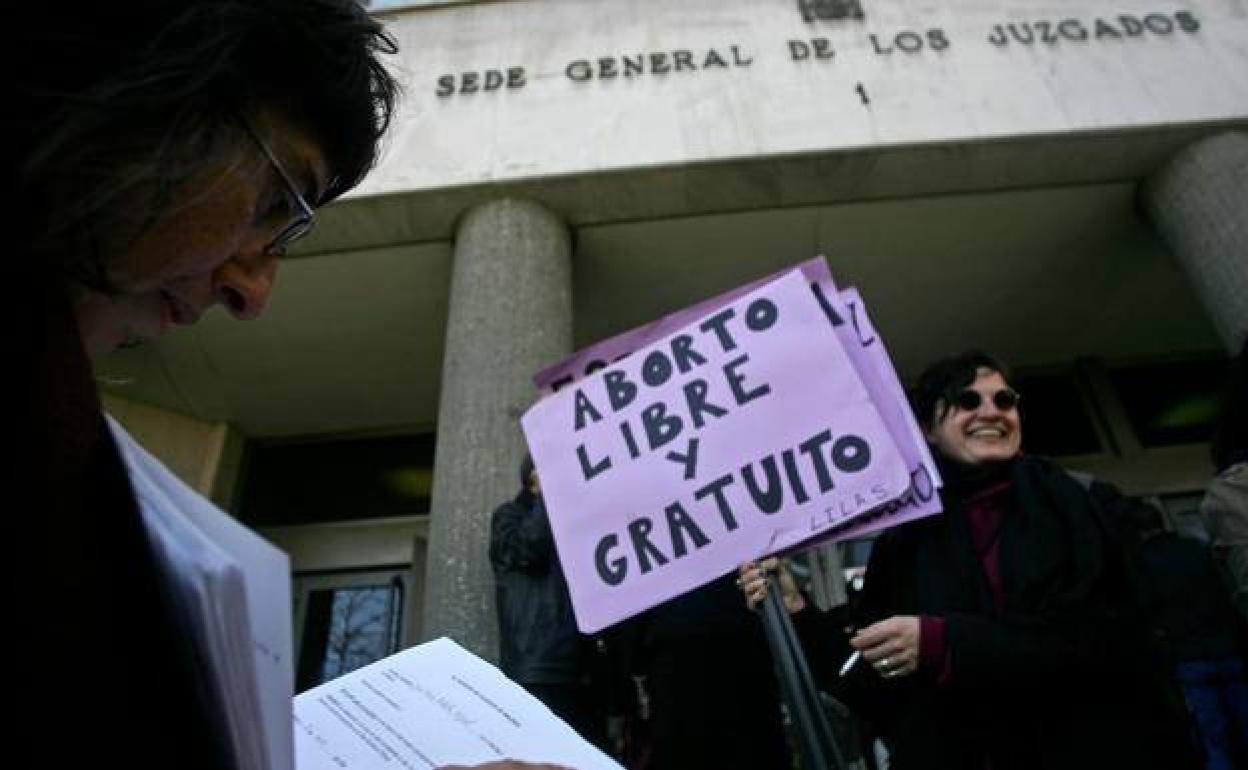

Sections
Highlight

Alberto Torices
Madrid
Wednesday, 11 May 2022, 19:06
The Spanish government is hoping to approve its draft abortion law next Tuesday and then send it immediately to Congress, with the aim of having a new law in force in early 2023 which is much more ambitious and wide-ranging than the one of 2010.
The move comes at a time when the right to free abortion is in question and hitting the headlines in newspapers all over the world because of the possibility that the US Supreme Court, with an ultra-conservative majority, will prohibit or restrict it in that country 50 years after it was authorised.
It is important for the Spanish government that nothing similar to what might occur in the USA happens in this country, and ministerial negotiators want this to be a completely new law, which replaces rather than reforms the 2010 Law of Time Limits.
The final text of the new law has not yet been confirmed, but as well as guaranteeing the right to voluntary, free abortion during the first 14 weeks of pregnancy in public health hospitals all over Spain, it may also declare surrogacy to be violence against women, approve initiatives to promote menstrual health and prosecute bad gynaecological and obstetric practices during pregnancy and birth.
It has been suggested that the new law may also include reduced or zero VAT on feminine hygiene products, sick leave for women who suffer from painful periods, and ban advertising from surrogacy agencies with fines for any that fail to comply. Ministers may also consider introducing legal action against Spanish couples who try to evade a ban on surrogate pregnancies in this country by travelling abroad to contract the service.
Under the new law, any woman over the age of 16 would have the exclusive right to decide what she does with her body and her pregnancy, and if she decides to terminate it she will be guaranteed attention in a hospital close to her home, by the most appropriate method.
At present, a lack of control means that only 21% of the almost 100,000 abortions carried out in Spain every year take place in hospitals. Most women go to subsidised clinics. In nine provinces, not including Ceuta and Melilla, no abortions have been carried out in hospitals since Felipe González decriminalised abortion in 1985, and in three others there have been none in the past five years.
Publicidad
Publicidad
Publicidad
Publicidad
Esta funcionalidad es exclusiva para registrados.
Reporta un error en esta noticia

Debido a un error no hemos podido dar de alta tu suscripción.
Por favor, ponte en contacto con Atención al Cliente.

¡Bienvenido a SURINENGLISH!

Tu suscripción con Google se ha realizado correctamente, pero ya tenías otra suscripción activa en SURINENGLISH.
Déjanos tus datos y nos pondremos en contacto contigo para analizar tu caso

¡Tu suscripción con Google se ha realizado correctamente!
La compra se ha asociado al siguiente email
Comentar es una ventaja exclusiva para registrados
¿Ya eres registrado?
Inicia sesiónNecesitas ser suscriptor para poder votar.